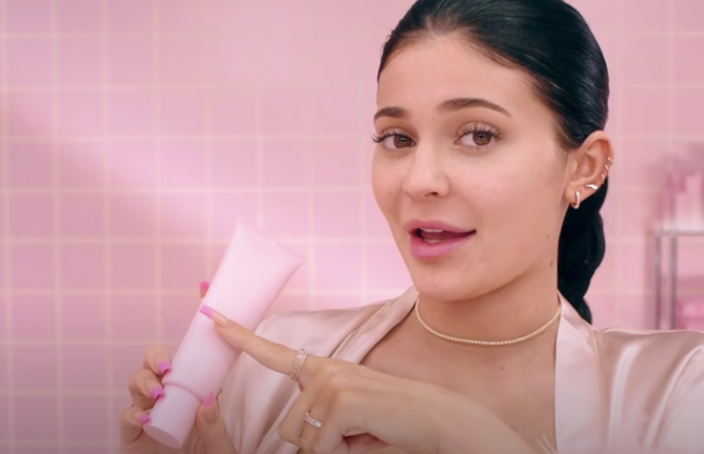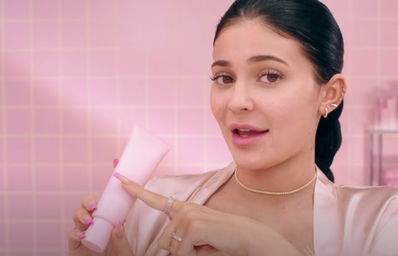On May 28, a fan account leaked the news that Harry Styles had trademarked SHE for a fragrance and cosmetics line. My sister burst through my bedroom door, excited to break the news. A huge Harry Styles fan, she thought I’d be delighted — so when I seemed a bit bored, she was taken aback.
While I do really wish Harry the best (as if he needs my blessing), I’m disinterested in a celebrity’s name attached to yet another cosmetics line. Big name superstars have proven time and time again that they lack the knowledge and passion that launching a beauty brand requires. And, most of the time, they appear to be entering the industry for the wrong reasons.
Although I won’t judge a brand before trying its products, I fully back the skepticism that comes with celebrities creating their own skincare lines. Frankly, all of the singers, actors, and famous people jumping on the skincare bandwagon feels like a cash grab — another chance for celebs to diversify their income streams, slap their name on a product, and call it a day.
“I am so sick of celebrities making skincare lines just because they can.”
Similar to my reaction to Mr. Styles’ cosmetics line, a quick scroll through #SkinTok will show you that many creators also appear to be more jaded, rather than excited, at these new releases. Take this review of Pharrel’s Humanrace, the assertion that Alicia Keys’ line is a decent, yet overpriced gimmick, or JLo Beauty being criticized for its drying ingredients and fillers. Across each review, there seems to be a common underlying question: Is this skincare brand actually good, or was it just created by a celebrity? TikTok creator Madi Hearts even prefaces a video by saying, “I am so sick of celebrities making skincare lines just because they can.”
Unlike founders like Kate Somerville or Shani Darden, who began their careers by training under other estheticians and attending school before they made it big, celebrities seem to declare their newfound interest in skincare with the same level of commitment to a fad diet. Many celebrities fail to conduct the bare minimum amount of research to even pretend they know enough about skin care. See: the Fenty Skin witch hazel controversy last summer, Jenner’s walnut scrub product launch, Gwyneth Paltrow’s claim that SPF is actually harmful, or criticism of Millie Bobby Brown’s lack of sunscreen application.
There’s TikTok star Addison Rae, whose Item Beauty launch begs the question: are social media sensations really qualified enough to start beauty brands, or should they stay in their lane? As consumers, I believe we shouldn’t be expected to purchase something simply because the founder or face of the brand has a high follower count. Yet, nowadays, it’s evident that you don’t have to know anything about skincare to release a product and get people to buy.
Their privilege as multi-million dollar moguls adored by all allows them to enter spaces they know nothing about.
When celebrities screw up like this, it reveals something deeper: that their privilege as multi-million dollar moguls adored by all allows them to enter spaces they know nothing about without doing the bare minimum of research. Meanwhile, there are hundreds of small businesses and minority-owned companies who do all that and then some, and will never be able to gain the hype.
Would you eagerly buy from a brand owner that doesn’t know the proper order to put on their products? Maybe, but with some skepticism. A celebrity can do the same thing and face little to no repercussions because people are buying the product for the name — and that’s not necessarily fair, especially considering the countless CEOs and faces of smaller beauty brands who have invested in their businesses for years, and spend countless hours analyzing what their potential customers would like best.
Many celebrities rely on everyone else to do the work for them, and merely sit and look pretty while product photography takes place. Yet brands with founders like Lindsey Martin from Kiramoon Beauty, who spent months building her credibility before her first product even launched, and Cocokind founder Priscilla Tsai, who went door to door selling her product to natural retailers, have more heart, purpose, and gumption behind them than any celebrity skincare brand could achieve.
The passion and purpose that comes with founding a skincare brand has been lost in a sea of airbrushed and star-studded promotional videos, when really, what consumers want is honesty.
Even if a celebrity skincare brand fails, which it most likely won’t, celebrities are rarely impacted financially. These stars have fanbases they know will buy a product, and they seldom have to start from the ground up. Smaller, indie skincare brands and founders who are just getting started have much more at stake, yet are often overshadowed by the noise of popular celebrity-driven brands.
There’s a shred of hope for some celebrities looking to branch out into the beauty spectrum. In my opinion, Selena Gomez’ Rare Beauty release did feel like a breath of fresh air, because it included accessible packaging and has pledged to raise $100 million in the next 10 years to help address gaps in mental health services for underserved communities through the Rare Beauty Fund.
Perhaps support of Gomez’s brand was partially due to transparency about social good, rather than the products themselves. Maybe Rare Beauty has cracked the code on what celebrity skincare lines have been missing: the passion and purpose that comes with founding a skincare brand has been lost in a sea of airbrushed and star-studded promotional videos, when really, what consumers want is honesty.


